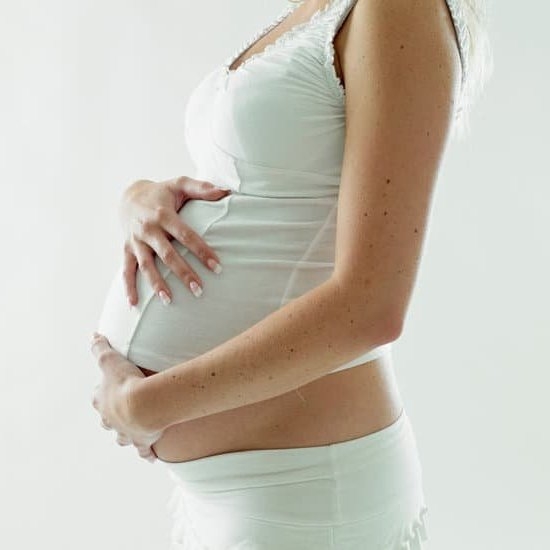Pregnancy is a crucial time when the health and well-being of both the mother and the baby are at stake. The nutritional status of a pregnant woman plays a significant role in determining the outcome of her pregnancy. It’s important to be aware of the signs of nutritional deficiency in pregnancy, as they can have serious implications for both the mother and the developing fetus.
Nutrition is essential for supporting the growth and development of the baby, as well as for maintaining the health of the mother during pregnancy. A lack of adequate nutrients can lead to various complications, including low birth weight, preterm birth, and developmental issues for the baby. Therefore, it is vital for pregnant women to pay close attention to their diet and ensure they are meeting their nutritional needs.
In this article, we will explore the common symptoms and signs of nutritional deficiency in pregnancy, along with the specific nutrients that pregnant women need to be mindful of. We will also delve into the impact that these deficiencies can have on both maternal and fetal health, as well as provide tips for ensuring proper nutrition during pregnancy.
Additionally, we will discuss the importance of prenatal vitamins and supplements, share real-life stories about how nutritional deficiencies can affect pregnancy, and offer guidance on seeking professional help when addressing these issues.
Common Symptoms and Signs of Nutritional Deficiency in Pregnancy
During pregnancy, it is crucial for expectant mothers to maintain proper nutrition in order to support the health and development of the baby. However, sometimes nutritional deficiencies can occur, which can have adverse effects on both the mother and the baby. It is important for pregnant women to be aware of the signs of nutritional deficiency in pregnancy so that they can take appropriate measures to address any potential issues.
One common sign of nutritional deficiency in pregnancy is fatigue and weakness. Pregnant women may feel unusually tired and weak, even after getting enough rest. This could be a sign of anemia, which is often caused by iron deficiency. Other symptoms of anemia include pale skin, dizziness, and shortness of breath.
Another sign to watch out for is unusual food cravings or aversions. While some degree of food cravings and aversions are normal during pregnancy, extreme or unusual cravings could indicate certain deficiencies. For example, craving non-food items like ice or dirt (a condition known as pica) could be a sign of iron or other mineral deficiencies.
Furthermore, experiencing hair loss or brittle nails can also be a sign of nutritional deficiency in pregnancy. The body’s demand for certain nutrients increases during pregnancy, and not getting enough of these nutrients can lead to hair and nail problems. It is important for pregnant women to pay attention to these signs and discuss them with their healthcare provider in order to address any potential nutritional deficiencies.
Nutritional Deficiencies to Look Out for During Pregnancy
During pregnancy, it is crucial for expectant mothers to be aware of the potential nutritional deficiencies that may arise. Nutritional deficiencies can not only affect the health of the mother but also have a significant impact on the development of the baby. It is important to know which nutrients are essential during pregnancy and how their deficiency can manifest through various signs and symptoms.
Iron Deficiency
Iron deficiency is one of the most common nutritional deficiencies in pregnancy. The demand for iron increases during pregnancy to support the growth and development of the fetus. Signs of iron deficiency may include fatigue, weakness, pale skin, shortness of breath, and an increased heart rate. Severe iron deficiency can lead to anemia, which poses serious risks for both the mother and baby.
Folic Acid Deficiency
Folic acid, also known as folate, is a B vitamin that plays a crucial role in fetal development, particularly in preventing neural tube defects. A deficiency in folic acid during pregnancy can result in an increased risk of birth defects such as spina bifida. Signs of folic acid deficiency may include weakness, fatigue, irritability, and a decreased appetite.
Calcium Deficiency
Calcium is essential for building strong bones and teeth in both the mother and baby during pregnancy. A lack of calcium can lead to conditions such as preeclampsia and low birth weight in babies. Signs of calcium deficiency may include muscle cramps, numbness or tingling in the fingers, weak or brittle nails, and tooth decay.
Being aware of these common nutritional deficiencies and their associated signs during pregnancy is crucial for ensuring a healthy outcome for both mother and baby. It is important for expectant mothers to maintain a balanced diet rich in essential nutrients and vitamins to prevent these deficiencies from occurring. Regular prenatal check-ups with healthcare providers will also help monitor these nutrient levels and address any deficiencies promptly to promote a healthy pregnancy.
Impact of Nutritional Deficiency on the Health of the Mother and Baby
Nutritional deficiencies during pregnancy can have a significant impact on the health of both the mother and the baby. Lack of essential nutrients can lead to a variety of complications that can affect the well-being of both individuals. Some of the common signs of nutritional deficiency in pregnancy include fatigue, weakness, anemia, and preeclampsia. It is important for expectant mothers to be aware of these signs in order to seek proper treatment and ensure a healthy pregnancy.
Iron deficiency is one of the most common nutritional deficiencies in pregnant women. This can lead to anemia, which in turn can cause fatigue and weakness. In addition, calcium deficiency can increase the risk of bone-related issues for both the mother and the developing baby. Vitamin D deficiency can also lead to problems with bone development and growth. These are just a few examples of how nutritional deficiencies can impact the health of both mother and baby during pregnancy.
In some cases, nutritional deficiencies during pregnancy can even lead to long-term health issues for the baby, such as developmental delays or birth defects. It is crucial for expectant mothers to prioritize their nutrition and be mindful of any signs of nutritional deficiency in order to minimize these risks and ensure a healthy outcome for both themselves and their babies.
| Nutritional Deficiency | Potential Impact on Health |
|---|---|
| Iron Deficiency | Anemia, fatigue, weakness |
| Calcium Deficiency | Increase risk of bone-related issues |
| Vitamin D Deficiency | Problems with bone development and growth |
Tips for Ensuring Proper Nutrition During Pregnancy
Ensuring proper nutrition during pregnancy is crucial for the health and well-being of both the mother and the baby. A diet that is rich in essential nutrients can help reduce the risk of complications during pregnancy and promote healthy fetal development. It is important for expectant mothers to pay close attention to their dietary intake and make conscious choices to ensure they are meeting their nutritional needs.
One of the key signs of nutritional deficiency in pregnancy is extreme tiredness or fatigue. This can be a result of various nutrient deficiencies such as iron, folate, or vitamin B12. Other common symptoms include frequent infections, difficulty concentrating, brittle nails, hair loss, and pale skin. If left unaddressed, these deficiencies can lead to serious health complications for both the mother and the developing baby.
Pregnant women should focus on consuming a well-balanced diet that includes a variety of fruits, vegetables, whole grains, lean proteins, and dairy products. In addition to a healthy diet, prenatal vitamins and supplements are often recommended to fill any nutritional gaps. Working closely with a healthcare provider or nutritionist can also provide personalized guidance on meeting specific dietary needs during pregnancy.
| Signs of Nutritional Deficiency | Importance of Proper Nutrition During Pregnancy |
|---|---|
| Extreme fatigue | Reduced risk of complications during pregnancy |
| Frequent infections | Promotion of healthy fetal development |
| Brittle nails and hair loss | Prevention of serious health complications for mother and baby |
Importance of Prenatal Vitamins and Supplements
During pregnancy, it is crucial for women to ensure they are getting the right amount of vitamins and minerals to support their own health and the healthy development of their baby. While a balanced diet is the best way to obtain necessary nutrients, prenatal vitamins and supplements can also play a key role in ensuring proper nutrition during this critical time.
Why Prenatal Vitamins Are Essential
Prenatal vitamins are specifically formulated to meet the increased nutritional needs of pregnant women. They typically contain higher levels of folic acid, iron, calcium, and other essential vitamins and minerals that support the healthy growth and development of the fetus. Folic acid, for example, is crucial for preventing neural tube defects in babies, while iron helps prevent anemia in pregnant women.
Supplements to Consider
In addition to prenatal vitamins, some pregnant women may need additional supplements based on their individual nutritional needs. Omega-3 fatty acids are important for brain development in the fetus, so taking a supplement with DHA and EPA can be beneficial. Women who follow a vegetarian or vegan diet may also need to consider taking supplements for vitamin B12, as it is primarily found in animal products.
Consulting With a Healthcare Provider
It’s important for pregnant women to consult with their healthcare provider before taking any prenatal vitamins or supplements. A healthcare provider can assess each woman’s specific nutritional needs and recommend the appropriate supplements based on her diet, lifestyle, and overall health. They can also monitor any signs of nutritional deficiency in pregnancy and provide guidance on how to address them effectively.
Real-Life Stories
Pregnancy is a time when the body’s demand for essential nutrients increases significantly. Without proper nutrition, both the mother and the developing baby can face serious health risks. During pregnancy, there are certain signs that may indicate a nutritional deficiency, and real-life stories highlight the impact of such deficiencies on expectant mothers.
Some common signs of nutritional deficiency in pregnancy include:
- Fatigue and weakness
- Anemia
- Hair loss
- Poor fetal development
- Preeclampsia
Real-life stories serve as powerful reminders of the importance of proper nutrition during pregnancy. One woman shared her experience of severe fatigue and dizziness during her pregnancy, which was later diagnosed as an iron deficiency. Another mother recounted hair loss and brittle nails, which were linked to a lack of essential vitamins and minerals in her diet.
Without addressing these nutritional deficiencies, these women experienced complications that could have been avoided with proper nutrition. These stories underscore the importance of being vigilant about getting adequate nutrients during pregnancy to ensure the health and well-being of both mother and baby.
It is crucial for expectant mothers to educate themselves about the signs of nutritional deficiency in pregnancy and take proactive steps to address any concerns relating to inadequate nutrient intake. Seeking support from healthcare professionals and making informed choices about diet and supplements can make a significant difference in promoting a healthy pregnancy for both mother and baby.
Seeking Professional Help
During pregnancy, it’s crucial to be vigilant about any signs of nutritional deficiency in order to ensure the health and well-being of both the mother and the baby. While maintaining a balanced diet is essential, some women may still experience deficiencies despite their best efforts. In such cases, seeking professional help can make a significant difference in addressing and managing these deficiencies.
When should you seek professional help for suspected nutritional deficiencies during pregnancy? Here are some signs that may indicate the need for medical intervention:
- Persistent fatigue or weakness
- Unexplained weight loss
- Frequent dizziness or lightheadedness
- Difficulty concentrating or mental fog
- Changes in skin, hair, or nails
If you or someone you know experiences any of these symptoms, it is important to consult with a healthcare provider as soon as possible. A thorough assessment and appropriate testing can help identify any nutritional deficiencies and determine the best course of action to address them.
In addition to seeking professional help, there are several ways to address nutritional deficiencies during pregnancy. This may include dietary adjustments, supplementation with vitamins or minerals, and ongoing monitoring to track progress. It’s important to follow the guidance of healthcare professionals and make necessary lifestyle changes to ensure optimal nutrition for both mother and baby.
Conclusion
In conclusion, prioritizing nutrition during pregnancy is crucial for the health and well-being of both the mother and the baby. As outlined in this article, understanding the signs of nutritional deficiency in pregnancy is essential for addressing any potential issues that may arise. By being aware of common symptoms and signs, expectant mothers can take proactive steps to ensure they are receiving the necessary nutrients for a healthy pregnancy.
Nutritional deficiencies to look out for during pregnancy include iron, calcium, vitamin D, and folic acid. These deficiencies can have significant impacts on the health of both the mother and the baby, leading to complications such as anemia, preterm birth, low birth weight, and developmental delays. It is important for pregnant women to be aware of these potential risks and take steps to address any deficiencies through a balanced diet and prenatal vitamins.
Seeking professional help is also crucial when it comes to addressing nutritional deficiencies in pregnancy. Healthcare providers can offer personalized guidance based on individual needs and circumstances. By working closely with healthcare professionals, expectant mothers can develop a comprehensive plan to ensure proper nutrition throughout their pregnancy journey.
Frequently Asked Questions
What Is the Most Common Nutritional Deficiency in Pregnancy?
The most common nutritional deficiency in pregnancy is iron deficiency. This is because a woman’s blood volume increases during pregnancy, which means she needs more iron to make more hemoglobin for her and her baby.
What Are the Symptoms of Lack of Vitamins in Pregnancy?
The symptoms of lack of vitamins in pregnancy can include fatigue, weakness, anemia, hair loss, brittle nails, and even neurological issues. It’s important for pregnant women to get enough vitamins such as vitamin D, vitamin B12, and folic acid to support their own health and the proper growth of their baby.
What Are the Symptoms of Malnutrition in Pregnancy?
Symptoms of malnutrition in pregnancy can include low birth weight in the baby, preterm birth, preeclampsia (high blood pressure), anemia in the mother, and even cognitive deficits in the child later on. Malnutrition during pregnancy can have serious long-term effects on both the mother and the child.

Welcome to my fertility blog. This is a space where I will be sharing my experiences as I navigate through the world of fertility treatments, as well as provide information and resources about fertility and pregnancy.





